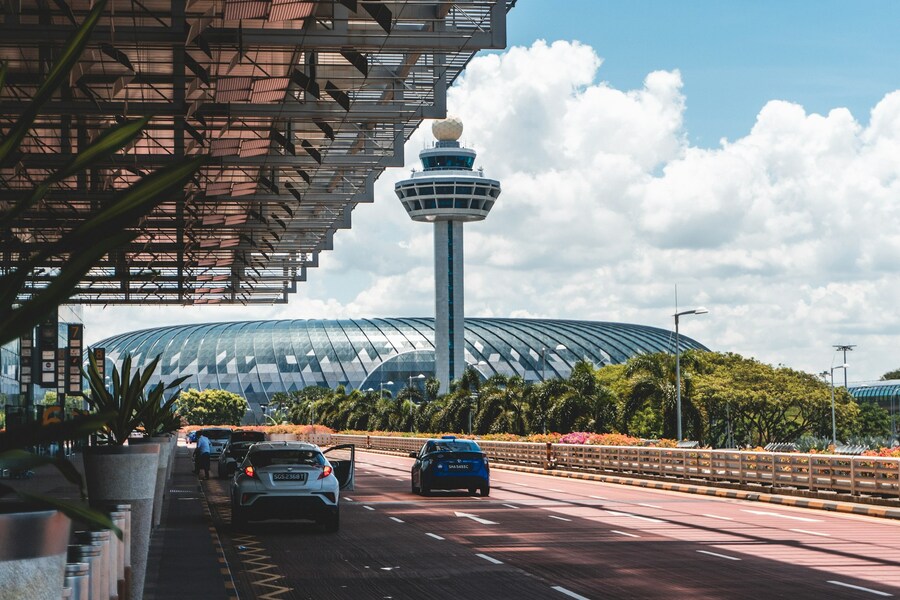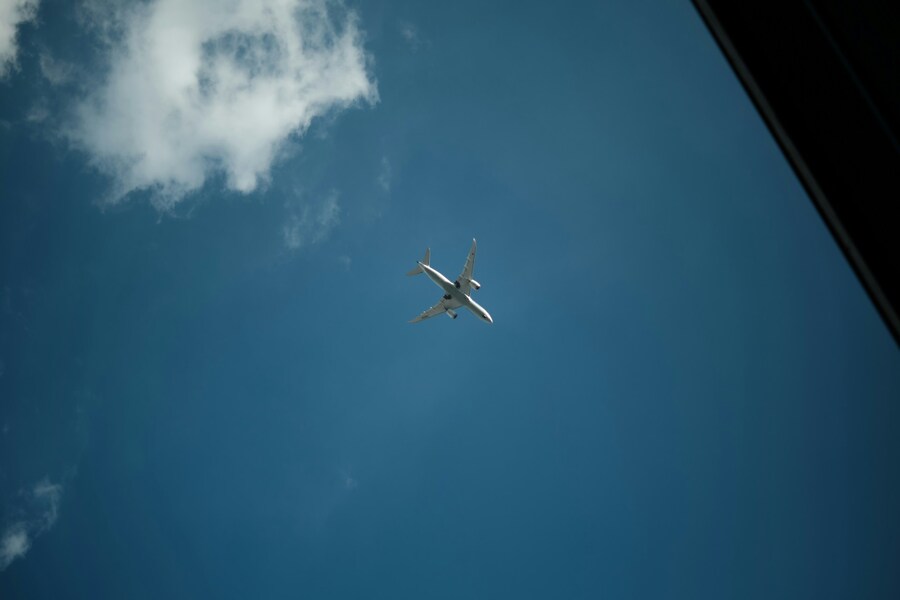The air travel landscape is perpetually evolving, yet one constant remains: the quest for the most seamless, enjoyable, and efficient journey possible. While the United States boasts several major air hubs, the world's truly exceptional airports – those that redefine the very concept of a layover – are overwhelmingly found overseas. For many globetrotters, the airport has transitioned from a mere transit point to an integral part of the travel experience, a destination in its own right. This transformation is reflected in the rigorous annual assessment conducted by the international air transport rating association, Skytrax, whose World Airport Awards stand as the definitive benchmark for global customer satisfaction. These awards, based on a comprehensive survey of millions of passengers across hundreds of airports, shine a light on the facilities that are truly excelling in service, design, and passenger amenities. So, let's dive into the results!
What does it take to be crowned the world's best airport?
The 2025 World Airport Awards survey canvassed passengers from over a hundred nationalities, scrutinizing everything from check-in efficiency and security processing to shopping, dining, and terminal comfort. The results consistently highlight a global concentration of excellence, with Asian, European, and Middle Eastern hubs dominating the upper echelons of the rankings. North America's representation in the top tier remains minimal, underscoring the innovative strides made by international competitors in creating environments that are as much leisure complexes as they are transit centers. When preparing for a trip through one of these premier hubs, travelers should consider the entire journey, which often begins long before arriving at the terminal. Services like ParkingNearAirports.io, for instance, offer a valuable solution for those driving to the departure point, providing both long-term and short-term parking, often at a significant discount to on-site options. The ability to complete an airport parking reservation in advance can substantially mitigate the stress and unpredictable nature of traditional airport parking.
Back-to-back champ

Source: Shawn/Unsplash
The title of the World's Best Airport is no transient honor, and for the thirteenth time, the crown belongs to Singapore's Changi Airport (SIN). Changi is a rare marvel, an aviation hub so replete with attractions that travelers actively hope for a long layover. It consistently sets the global standard, not just in operational efficiency, but in sheer passenger delight. Its features are legendary: the awe-inspiring Rain Vortex, the world's tallest indoor waterfall cascading within the Jewel Changi complex – a 10-story nexus of shopping and entertainment – stands as its iconic centerpiece. Beyond this breathtaking architectural feature, the airport boasts lush indoor gardens, a relaxing koi pond, a cinematic experience in a 24-hour movie theater, and even a rooftop swimming pool and jacuzzi area where one can unwind while observing aircraft movements. These amenities transform a potential wait into a captivating pause. Last year, the airport drew over 80 million people, a testament to its status as a destination in and of itself, serving local visitors as enthusiastically as it serves global transit passengers. For those traveling with significant luggage, Changi's policy of allowing bag drop-off up to 48 hours in advance further enhances the ability to fully immerse in the airport's unparalleled facilities before departure. This forward-thinking approach is part of a multi-billion dollar investment plan that includes improvements to its existing terminals and the eventual construction of a fifth, ensuring its continued reign as a global leader.
Extra awards

Source: Bianca Lucas/Unsplash
While Changi's overall victory is significant, several other airports distinguished themselves with individual category wins, proving that excellence is distributed across various operational aspects. Doha's Hamad International Airport (DOH), the previous year's overall winner, secured the second-place ranking this year, continuing its remarkable trajectory as one of the world's most luxurious and artistically compelling travel hubs. It was also lauded for winning the World's Best Airport Shopping award for the third consecutive year, a testament to its array of high-end retail options. The airport, known for its striking architectural design and commitment to creating a sophisticated travel experience, is celebrated for its stunning collection of public art and the ORCHARD, a vast indoor tropical garden that brings a serene, natural environment into the heart of the terminal.
Meanwhile, Tokyo's Haneda Airport (HND) clinched the third-place spot, while simultaneously sweeping a number of key specialty awards. Haneda was recognized as the World's Cleanest Airport for the tenth consecutive year, a nod to the meticulous operational standards of Japan. It also retained the titles of World's Best Domestic Airport for an impressive thirteenth time and secured the World's Best Airport PRM & Accessible Facilities award for the seventh straight year, highlighting its dedication to comfort and ease of access for all passengers. The recognition of domestic airport parking and the overall flow of regional travel is a crucial component of Haneda's success, demonstrating that world-class standards apply just as rigorously to shorter-haul and local journeys.
Other notable winners who demonstrated excellence in specific passenger services include Seoul Incheon International Airport (ICN) (ranked 4th), which received the accolade for World's Best Airport Staff, emphasizing the value of human interaction in the travel process. Copenhagen Airport (CPH) (18th) was recognized for World's Best Airport Security Processing, an area of paramount concern for all travelers. The collective efforts of the Houston Airport System, encompassing both Hobby (HOU) and George Bush Intercontinental (IAH), were honored for the World's Best Airport Art. For those flying from or to an international airport and concerned about the rising airport parking charges, knowing that off-site options, like those accessible through platforms, such as ParkingNearAirports.io, can provide an economical alternative, often with shuttle services, allows travelers to prioritize the in-terminal experience without financial worry.
Complete list

Source: Serg Magpie/Unsplash
The comprehensive global ranking reaffirms that the pinnacle of the air travel experience is primarily found outside of American borders. The assessment process involved a thorough analysis of 575 airports, with the final top 20 serving as a masterclass in modern airport management and design. The vast majority of airports on this elite roster hail from Asia and Europe, with the Middle East also making a powerful statement. Only one North American and one Australian airport managed to break into the top tier.
The top 20 best airports in the world are:
- Singapore Changi Airport – Singapore
- Doha Hamad International Airport – Qatar
- Tokyo Haneda Airport – Japan
- Seoul Incheon International Airport – South Korea
- Tokyo Narita Airport – Japan
- Hong Kong International Airport – Hong Kong
- Paris Charles de Gaulle Airport – France
- Rome Fiumicino Airport – Italy
- Munich International Airport – Germany
- Zurich Airport – Switzerland
- Dubai International Airport – United Arab Emirates
- Helsinki-Vantaa Airport – Finland
- Vancouver International Airport – Canada
- Istanbul Airport – Turkey
- Vienna International Airport – Austria
- Melbourne Airport – Australia
- Chubu Centrair International Airport – Japan
- Copenhagen Airport – Denmark
- Amsterdam Schiphol Airport – The Netherlands
- Bahrain International Airport – Bahrain
This list provides a global roadmap for those seeking the highest quality of air travel, highlighting hubs that manage immense traffic while maintaining exceptional standards of service and amenities. The inclusion of two Canadian and Australian airports, alongside the strong showing from various European and Japanese airports, indicates a diverse representation of quality, though Asian and Middle Eastern facilities continue to lead the charge with massive, state-of-the-art complexes that redefine passenger expectations. These airports aren't just models of transport efficiency; they are pioneers in blending commerce, leisure, and architectural beauty into the logistical challenge of global connectivity.
Conclusion
The clear message from the rankings is that the future of air travel is in the passenger experience; airports are now destinations. Global hubs are investing billions to innovate, compete, and provide memorable comfort. As this trend empowers travelers to be more discerning, prioritize your own logistical preparation. Taking the time to secure critical needs, such as reliable and clearly-priced off-site parking reservations, can eliminate stress. The world's best airports are waiting to genuinely welcome you. Fly safe and always explore with curiosity!






